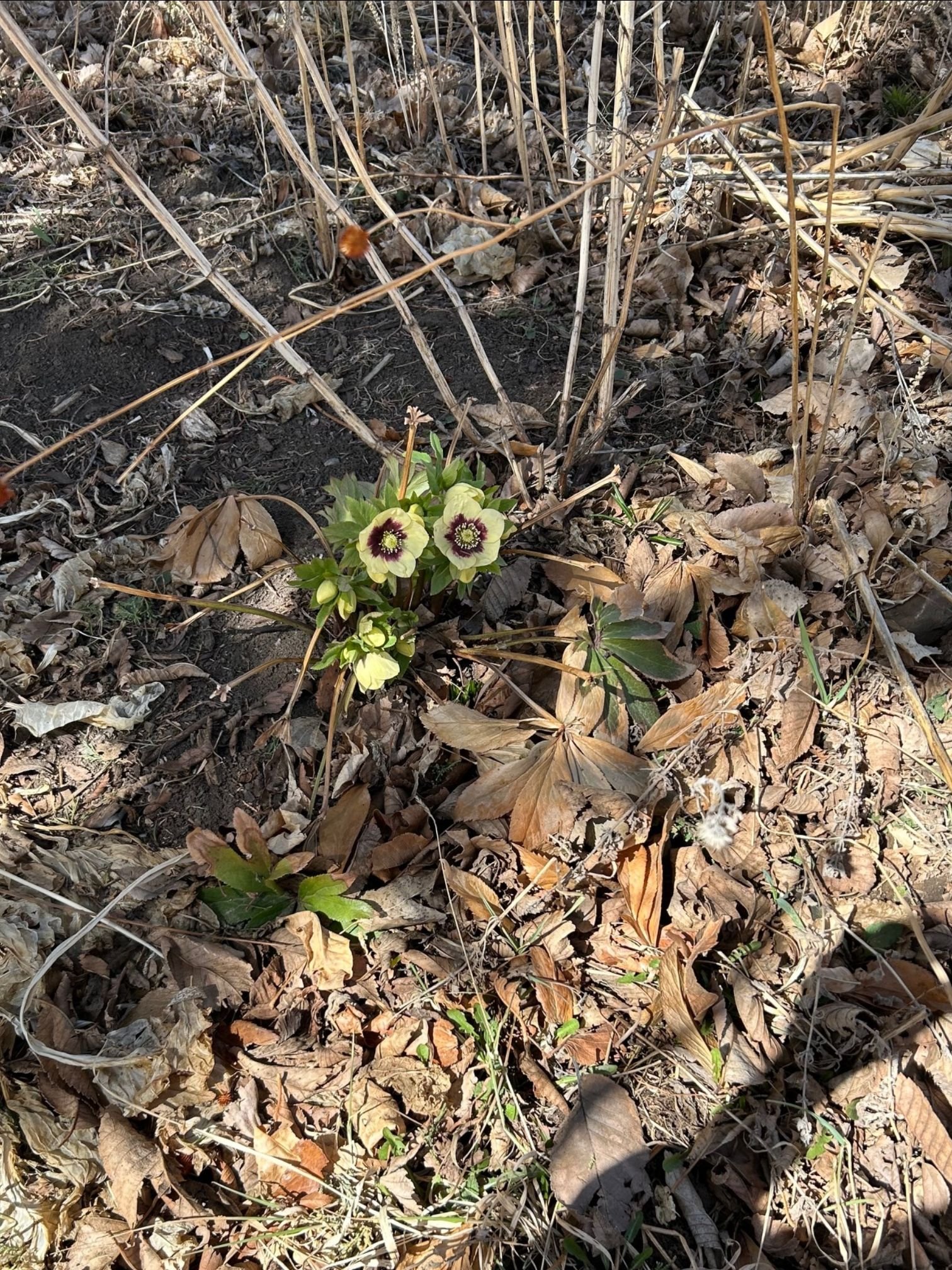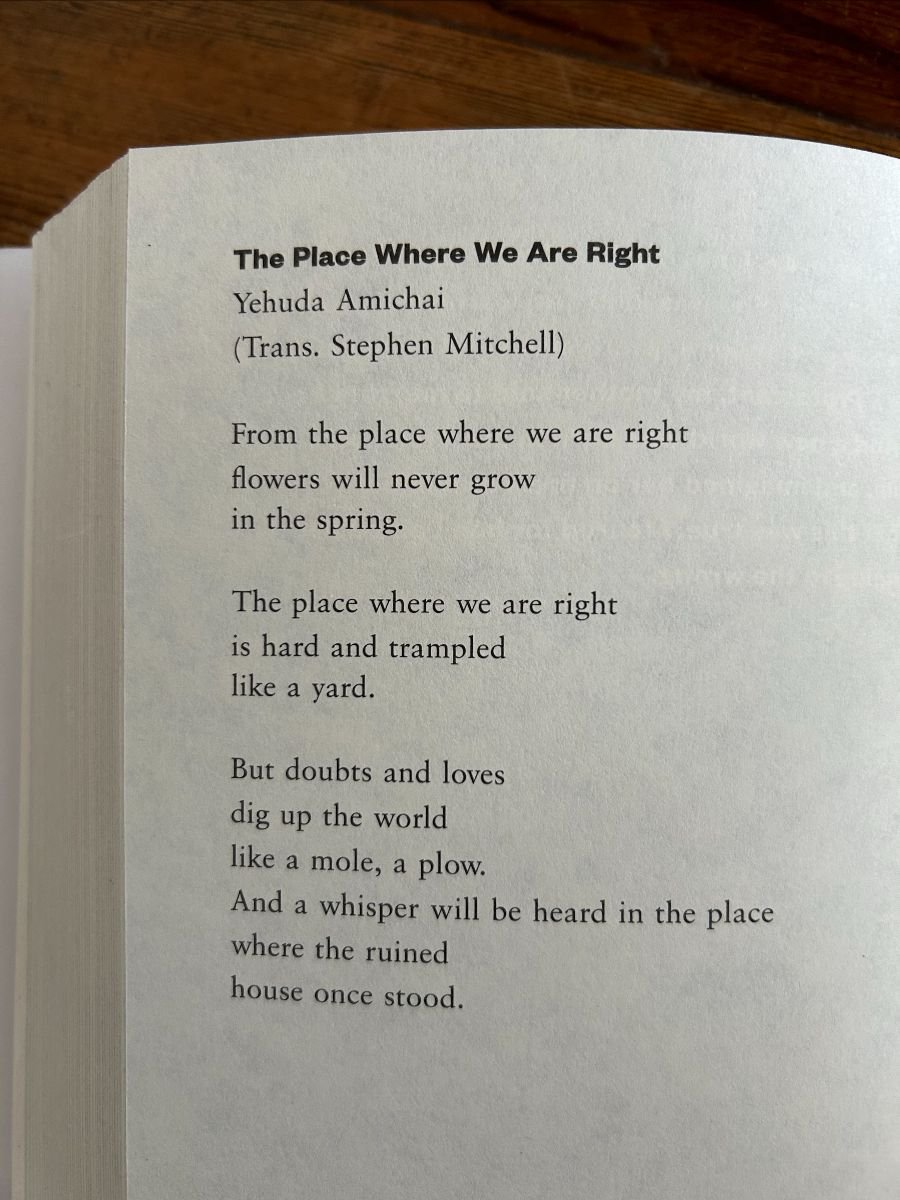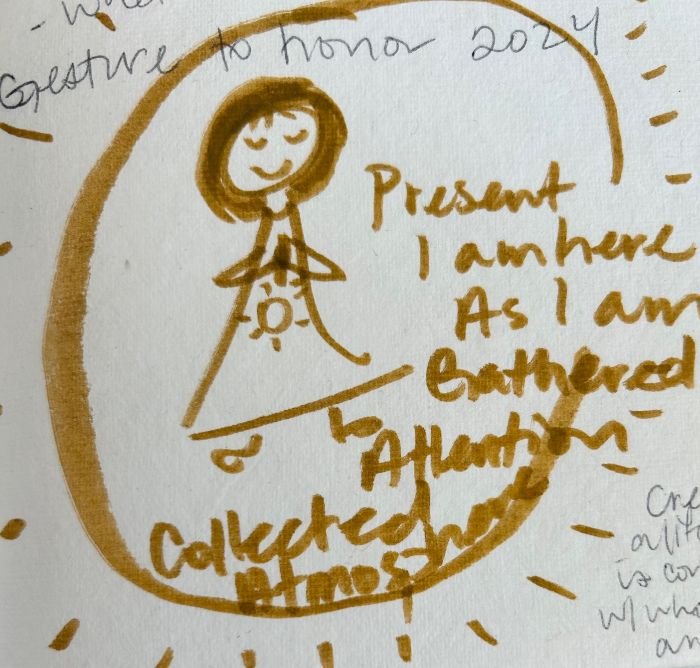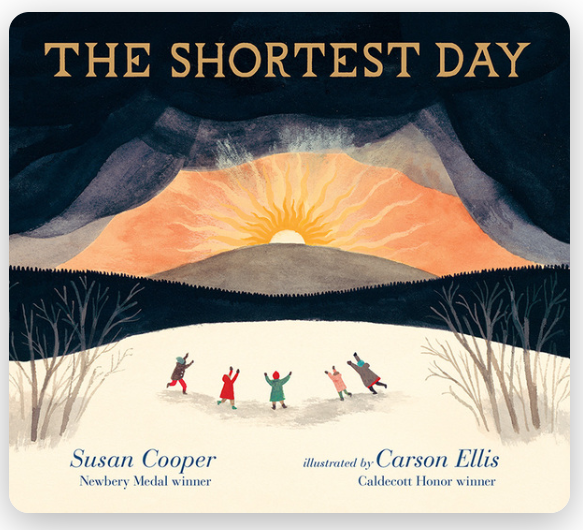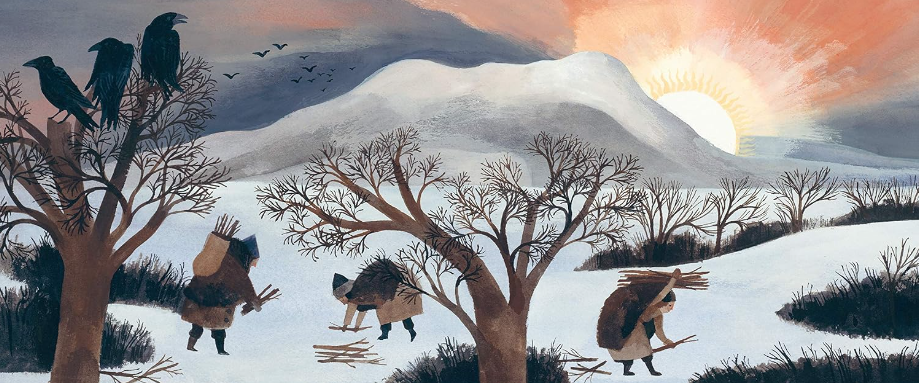going on an average retreat
I went on a silent retreat this past week at the nearby Benedictine Abbey of St. Walburga and it was good but also kinda normal/average.
I've been there many times over the past ten years, and I have short notes from all my different visits (Day 2, slept like crap, mind racing about).
What I noticed this time was that it felt like I had less of an entry and exit shock.
I went on a silent retreat this past week at the nearby Benedictine Abbey of St. Walburga and it was good but also kinda normal/average.
I've been there many times over the past ten years, and I have short notes from all my different visits (Day 2, slept like crap, mind racing about, etc).
What I noticed this time was that it felt like I had less of an entry and exit shock.
I think because I'm less interested in having ecstatic experiences on retreat only to have it all dissolve when re-entering "real life.” (This can be a real trap—endlessly pursuing the next retreat/program/workshop high. And while our culture seems to always be seeking excitement and ecstasy, actually the word “ecstatic” literally means standing outside yourself while “enstatic” or “enstasy” means collected within yourself.)
And I think there was less of an entry or exit shock because I've intentionally worked to bring the stable energy of the Abbey into my daily life at home.
So I was more my regular, old self there and I wasn't looking for high intensity or some mystical moment.
I read. I wrote. I was bored. I laughed at myself. I went for walks and it was cold and cloudy and beautiful. I chanted the divine hours with the sisters and saw how they were their regular selves, too. I took one blurry photo from my desk and sent it to my son (see above).
And it was good, and coming home was good, too.
What do you think? Do you like going on retreats or doing workshops? How do you metabolize these experiences?
With care,
Brianna
How things begin is how they end
In her Dangerous Old Woman audio course Clarissa Pinkola Estés says she had a family member who would often say "how things begin is how they end."
Meaning, if something starts out hard or easy, we can take note and trust that as an indicator.
In her Dangerous Old Woman audio course (available on Hoopla, the library app) Clarissa Pinkola Estés says she had a family member who would often say "how things begin is how they end."
Meaning, if something starts out hard or easy, we can take note and trust that as an indicator.
This is counter-cultural. Our culture tells us to push through and fight and work hard and things will get better. What would you call this...the myth of perpetual improvement?
But what if we trusted that the way a thing starts is often evidence of how it will go?
I've been playing around with this idea and keep seeing the truth of it.
I had a potential editing client ask to meet with me and then they got the time zones off and missed our meeting so we rescheduled and then their audio on the zoom call didn't work and we tried all sorts of troubleshooting. We finally connected and chatted for a bit, and it didn't seem like a great fit, for either of us. And then they emailed to tell me they went with a different editor. Of course they did! Ha. How things begin is how they end.
Anyway, I like this practice of looking for the seeds of truth in the beginning of a new thing—a relationship, a creative work, a job—and trusting the truth in it, trusting your instincts rather than overriding them.
It feels like a super-power to stop gas-lighting ourselves and what we likely sense from the very beginning.
And this doesn't mean that just because something starts out hard, we have let it go. It just means that we have more awareness and acceptance about how this thing will likely continue to be challenging for us. Good to know!
You can also reverse-engineer this to see how it plays out: look at an ending and see if there were seeds of truth about it in the beginning.
What do you think? Have you found this to be true in your life? I'd love to hear.
Brianna
Fascinations and non-monetized hobbies
Do you have any hellebore (aka lenten rose) blooming by you?
The ones in my yard started blooming a couple weeks ago, and it was such a shock to see their beautiful flowers here toward the end of "The Long Brown Time," as I like to call this season.
Do you have any hellebore (aka lenten rose) blooming by you?
The ones in my yard started blooming a couple weeks ago, and it was such a shock to see their beautiful flowers here toward the end of "The Brown Time," as I like to call this season in northern Colorado.
Look at them surrounded by all the dead leaves—I was so happy to see them!
I've been getting into flowers a little bit the past couple years and it feels so good to have an interest that isn't about being productive or optimizing anything or making money.
It's for pleasure.
And I find the whole flower world fascinating. I've been reading books and watching youtube videos and I haven't done a whole lot of actual gardening—more just watching/reading about other people growing flowers. Ha!
But I did just start some sweet pea seedlings and I'll start some zinnias here in a few weeks. Wish me luck!
I remember a teacher once saying that fascination is attention without effort. That's what this feels like.
Do you have a fascination that isn't "practical" and brings you a lot of pleasure? I'd love to hear.
With care,
Brianna
p.s. Another hellebore photo (taken by a pro), because they are so pretty!
Photo by Annie Spratt
Is my energy higher than the thing I'm creating?
I was listening to Elise Loehnen's podcast Pulling the Thread the other day and she said "Your vibration must be higher than the thing you create, otherwise you cannot manage it."
I really liked this and it's giving me one more way of processing my work with Ruminate, the literary magazine I dreamed up and led from 2006-2019.
I was listening to Elise Loehnen's podcast Pulling the Thread the other day and she said "Your vibration must be higher than the thing you create, otherwise you cannot manage it."
I really liked this and it's giving me one more way of processing my work with Ruminate, the literary magazine I dreamed up and led from 2006-2019.
I never could get Ruminate to a place where it was financially sustainable, which felt like a failure at a the time but I've been examining this story lately.
And when I heard Elise's words I wondered: what if we just became energetically mis-matched? Initially my energy was higher than the thing I was creating, but over the years, as Ruminate needed to grow and as I experienced a lot of self-doubt, I found myself feeling ten steps behind and unable to "manage it."
I like this framework—it feels true. And it feels like a kind way of telling the story.
I was talking to a colleague about this the other day and she asked if I ever actually thought an indie literary magazine could be financially viable long-term. I paused and told her: I did! Even though I knew the very nature of literary magazines is that they are ephemeral (I studied this for my Master's Thesis)! And then we both laughed.
What can I say, I'm an optimist and I guess I really like a challenge. Ha!
Anyway, I think Elise's idea is a useful question for all creatives and entrepreneurs:
Is my energy/vibration/capacity higher than the thing I am creating? If so, green light! If not, it will be difficult to manage.
And I think it turns out to also be a useful framework for making sense of why things aren't working or didn't work.
What about you? Does this ring true for you?
Are you also metabolizing any old "failure stories" in a new way?
I'd love to hear.
With care,
Brianna
photo by Karim Manjra
On receiving and translating messages from your intuition + creativity
I am very aware of and sensitive to the sun—it's like I'm heliotropic (when a plant follows the movement of the sun throughout the day). And for awhile I was even thinking of writing an entire book about the sun.
Here in Colorado we average around 300 days of sunshine and the sunshine feels stroooong. My friend who lives here now but grew up in Wisconsin always teases me and her other Colorado-born friends about how quickly we deteriorate (life is terrible!) after just a few days of cloudiness. But it's true. Ha!
I am very aware of and sensitive to the sun—it's like I'm heliotropic (when a plant follows the movement of the sun throughout the day). And for awhile I was even thinking of writing an entire book about the sun.
Here in Colorado we average around 300 days of sunshine and the sunshine feels stroooong. My friend who lives here now but grew up in Wisconsin always teases me and her other Colorado-born friends about how quickly we deteriorate (life is terrible!) after just a few days of cloudiness. But it's true. Ha!
And yet, for as much as I appreciate the sun, I'm not a fan of full exposure in it. It's too intense. I get heat rash and I overheat easily.
So I was doing a visualization the other day and asked my intuition/right brain/spirit what it wanted to foster these days in my work and writing. The message I heard was DAPPLED LIGHT.
Of course it was.
When I thought about how to translate this into real life, it felt like permission to not be over exposed and courage to not be fully in the shade either.
For example, I love writing to you all, people who have sought out and signed up to receive my letters via email—this feels like the perfect amount of exposure right now. It's dappled light.
And the thing about dappled light is it happens because of tree branches overhead. So I think I'm needing reminders of something larger standing overhead and filtering/protecting.
How do I translate that into real life? For me, that's my connection with the divine and with the saints and awakened ones beyond this world. My work and my writing need this. I need this.
Practically speaking, I think I'm going to put some sacred images around my desk to help remind me that assistance is available.
I love receiving this kind of metaphorical information from my intuition and then sitting with it and translating it into real life.
Does this process speak to you?
You can try it! Get comfy, close your eyes/soften your gaze, and ask your intuition/creativity/right brain/spirit to tell you what it wants to foster in your writing/work/relationships/life.
Let it unfold in your heart or mind's eye.
And then when you come out of the visualization, jot it down and then start translating it into real life.
If you try this, I'd love to hear how it goes for you!
With care,
Brianna
P.S. If you want help accessing your intuition/right brain/spirit/creativity or if you want help translating, I am here for it!
Photo by Alison Courtney
Although I see the stars, I no longer pretend to know them
I think creativity and mysticism return me to a deeper selfhood. Which might mean that my deeper selfhood is creative and mystical, right?
I think creativity and mysticism return me to a deeper selfhood. Which might mean that my deeper selfhood is creative and mystical, right?
I went back to some old notes and found these quotes I'd gathered.
The poet Christian Wiman writes: “Who knows what atomic energies are unleashed by a solitary man or woman quietly encountering some arrangement of language that gives their being—shunted aside by chores and fears and who knows what—back to them?”
Yes, who knows.
And another one: “Although I see the stars, I no longer pretend to know them,” writes the monk/mystic Thomas Merton.
And more than fifty years later the poet Joy Harjo has a reply: “a sky thrown open / to the need of stars / to know themselves against the dark.”
Yes, I think our creative and spiritual practices become a waltz of Being-ness, of seeing the stars and then losing them and realizing that maybe the stars themselves do this finding/losing thing too.
It's a waltz of flexibility and courage, of faithfulness and lightheartedness, of making a turn and being frightened and scrambled, of making a turn and feeling yourself stable and present.
I think it's serious work and it’s holy play.
I'm here for it.
What about you? Do you think your deeper selfhood is creative and mystical? Do you like to waltz? I really would love to know.
With care,
Brianna
part 2, the forgotten inner work of writing and publishing
In my previous post I shared my sense that one of the most important aspects of potent writing and publishing is having a "good, settled sense of who we are" (as poet David Whyte puts it). We tend to focus on all the outer elements of writing and publishing and forget this inner work.
I wanted to pick up this thread again and ask: So what do we do if we don't have a good, settled sense of who we are?
In my previous post I shared my sense that one of the most important aspects of potent writing and publishing is having a "good, settled sense of who we are" (as poet David Whyte puts it). We tend to focus on all the outer elements of writing and publishing and forget this inner work.
I wanted to pick up this thread again and ask: So what do we do if we don't have a good, settled sense of who we are?
In my editing work, one of the most common problems I see is that the book doesn't have a clear premise, thrust, argument, idea, thesis. It feels blurry or fuzzy or confused, and not on purpose (for some books, the main thrust is to intentionally blur and confuse).
Now sometimes this is because the author just needs more work with their craft or more time building out their story, but I think many times it's because the author is a little fuzzy about themselves and who they are and what they want.
So, what do we do about this? Okay, here's the really good news...
The very act of writing a book is an alchemical process of discovery where something new is on the other end. And that "something new" can be many things, but I think it's often a good, settled sense of who we are.
The very thing we are doing allows us to find the very thing we need!
I think this is so beautiful. And it's a real argument for working with many drafts of a book.
And I think it holds true for the process of publishing as well—the very act of becoming visible and putting yourself out there begins to reveal yourself to yourself. So maybe we try for at least a handful of "drafts" here, too.
What do you think? I really would love to hear.
With care,
Brianna
photo by Cathy Cardno
part 1, the forgotten inner work of writing and publishing
There are the outer aspects of writing a book and then there is the inner work it takes to believe that your words matters, to show up for your creativity, and to share your writing and be visible.
I think not knowing about or being honest about the very real inner work is what fizzles so many creative projects.
There are the outer aspects of writing a book and then there is the inner work it takes to believe that your words matters, to show up for your creativity, and to share your writing and be visible.
I think not knowing about or being honest about the very real inner work is what fizzles so many creative projects.
We focus on all the outer elements and getting all the practical and technical stuff sorted out, and we forget the depth of courage and strength and clarity required on the inside.
I forget too, which is why I keep this quote at the top of whatever writing draft I'm working on to help me remember:
"The sober truth is that any of us can find the time to write a book, no matter the schedule of unstoppable events in our life. Finding the part of us that wants to write the book is a different matter altogether....It takes a good, settled sense of what we are about, first to think that we deserve the time, and then to arrange our day so that what we want comes about.” David Whyte from The Three Marriages
Yes to finding a "good, settled sense of what we are about" and writing and publishing from there.
And when we tap into this deeper selfhood and create from there, we discover a powerful writing and publishing experience, which, no surprise, makes for powerful books that people want to read.
This is my theory. (And I think David Whyte's theory, too.)
What do you think? I'd love to hear!
With care,
Brianna
P.S. Wanna talk about this more? Me too! One of my specialties is coaching for the writer. Hit reply and tell me what you're working on or sign up for a free 30-minute consultation to talk about your project and what it would look like to work together.
photo by Cathy Cardno
From the place where we are right / flowers will never grow
My teenagers love it when they find me goofing up and then I tell them I was wrong...and even better if I tell them they were right. Ha! And then we usually laugh about it—there's something about parents being wrong that is innately funny.
But beyond that, I think cultivating a willingness to be wrong is so freeing…
My teenagers love it when they find me goofing up and then I tell them I was wrong...and even better if I tell them they were right. Ha! And hopefully we can laugh about it—there's something about parents being wrong that seems to be innately funny.
But beyond that, I think cultivating a willingness to be wrong is so freeing.
In my coaching training, one of the tools we learned was throwing out a hunch about the situation our client was dealing with and what we thought might be going on underneath what was being said. But then we were taught to immediately follow up our "hunch" with the phrase: "Tell me where I'm wrong."
I liked the pairing of these two things: A hunch about the deeper things happening and a real willingness to be wrong.
It's strange at first, but then oddly satisfying to have someone say, Hmm...yeah, that's not quite right, it's more like this...
It's satisfying because it's honest and it means they feel safe and the entire process is clarifying—it's like the client can "push off" from what I've proposed and get some new traction or perspective.
And sometimes we can't find the deeper truth without bumping around a little. So I go first and bump into a few walls.
Most of us weren't taught how to make mistakes. We were taught only to avoid mistakes at all costs, which keeps us small and tight.
I want to live expanded and loose.
What do you think? I really would love to hear.
With care,
Brianna
p.s. The subject line of this post is from the beautiful poem below by Yehuda Amachai about letting go of being right. I found this poem via the book Poetry Unbound by Pádraig Ó Tuama.
top photo by Irina Spotkai
palms pressed together
I did another retreat with the lovely Heather Ruce yesterday to honor the threshold of a new year, and I love how she integrates sacred gestures into her work.
Sacred gestures connect us with the body's intelligence through ancient and intuitive movements, which seem to carry their own energetic signatures. These are simple postures or gestures that our collective bodies have done for generations and generations and generations across cultures and traditions.
I did another retreat with the lovely Heather Ruce yesterday to honor the threshold of a new year, and I love how she integrates sacred gestures into her work.
Sacred gestures connect us with the body's intelligence through ancient and intuitive movements, which seem to carry their own energetic signatures. These are simple postures or gestures that our collective bodies have done for generations and generations and generations across cultures and traditions.
bowing our head
putting our hands over our heart
opening our arms wide
clasping our hands together
And each of these gestures can carry a spiritual substance or resonance—things like mercy, conscious attention, or surrender.
I've started paying more attention to those moments when I'm naturally drawn to one of these gestures—when a friend tells me something touching and I move my hands to my heart, when I'm out walking and suddenly need to spread out my arms, or when I find myself wanting to bow to the sunset (and I do!).
During the retreat yesterday Heather asked if there's a gesture we want to bring into the new year.
I decided that the gesture I'm being drawn to right now is standing tall with palms pressed together over my heart.
To me, this gesture represents presence and gathered attention. Sensing my feet on the ground and my palms meeting over my chest, it feels like something deep within me is kind of clicking into place. I am here.
What do you think?
If this speaks to you, what sacred gesture do you intuitively already practice? Does your body feel drawn toward a specific gesture these days? And if so, what is the energetic resonance for you within that gesture?
With care,
Brianna
p.s. The drawing is from my notes—a very intricate visual for you! :)
The Shortest Day
In honor of winter solstice my friend sent me a link to this poem/children’s book The Shortest Day.
Have you read it?
In honor of winter solstice my friend sent me a link to this poem/children’s book The Shortest Day.
Have you read it?
Here's a librarian’s meditative reading of it and you can see all the lovely illustrations.
Hope you enjoy!
gathered attention and plugging the leaks
I was in a class recently and the teacher asked us to draw a picture of attention. I drew a sun with big sunbeams radiating out. I was initially surprised to see how positive my association with attention is (I've historically had a lot of fear of being "too big for my britches" or getting too much attention or taking up too much space).
I was in a class recently and the teacher asked us to draw a picture of attention. I drew a sun with big sunbeams radiating out. I was initially surprised to see how positive my association with attention is (I've historically had a lot of fear of being "too big for my britches" or getting too much attention or taking up too much space).
But I think this shift is because of my spiritual/meditation practices where attention is sacred. And one the primary aims is to gather conscious attention so that we can taste a deeper selfhood, one that lives beyond preferences and personality...and begin to live from there,
And what helps us gather and collect our attention?
Plugging the psychic and energetic leaks. Noticing what scrambles and distracts us or floods us. Noticing the endless push/pulls we are engaging in (these are very big leaks!). Noticing what puts us on auto-pilot. Noticing what drags us down or fragments us.
I like to visualize my body as having a ceramic outer layer and I am putting the perfect-sized piece of cork into each of these "leaks."
And then I say "I am here." Gathered. Collected. Alive. Able to respond. Able to be of service. (And of course this is an ongoing process of forgetting and remembering, forgetting and remembering.)
Does this speak to you? If so, what energetic leaks can you plug today? I really would love to hear.
With care,
Brianna
Photo by Erol Ahmed.
Go forward like water
When I quit my job as editor-in-chief of the literary magazine I had dreamed up and led for 14 years, I was feeling pretty burnt out and cynical about the whole writing/reading thing.
And actually, I think I took a break from reading anything for awhile. I watched a lot of TV and movies and listened to podcasts.
But I was also starting to write poetry and thankgod I found Tony Hoagland.
When I quit my job as editor-in-chief of the literary magazine I had dreamed up and led for 14 years, I was feeling pretty burnt out and cynical about the whole writing/reading thing.
And actually, I think I took a break from reading anything for awhile. I watched a lot of TV and movies and listened to podcasts.
But I was also starting to write more poetry and thankgod I found Tony Hoagland.
His poems are narrative and hilarious and self-deprecating and wise and kind, and he reminded me of what I loved about reading and writing, which I won't even bother to try and put into a phrase here because it wouldn't be accurate. But I can say that its essence is in Tony Hoagland's poetry.
Tony had cancer and died on Oct. 23, 2018.
And when I was going through a particularly dark time a few years ago, I got a nudge to print out a picture of Tony and to ask for help.
I happen to believe that cosmic assistance is available to us all from realms beyond ours, and that the saints and awakened ones are able to help.
Tony is one of the saints or awakened one I celebrate and honor and I have felt his trickster energy and his deep compassion supporting me in my own life.
Today is his feast day so I wanted to share one of his kind trickster poems, "Distant Regard."
May we go forward like water,
Brianna
P.S. And the image above is a photo of my little feast-day celebration for Tony. (And here's the full "No Thank You" poem, which is also very good.)
hunting for your glasses when they're on your head...and other searches
Awhile ago I was looking in a book for a line I needed to hear again and had forgotten. And in the age of instant internet searches, I find that I am a lot more impatient with slowly flipping and scanning and flipping and scanning.
I could have sworn I had underlined the line, but I still couldn't find it and I gave up.
Awhile ago I was looking in a book for a line I needed to hear again and had forgotten. And in the age of instant internet searches, I find that I am a lot more impatient with slowly flipping and scanning and flipping and scanning.
I could have sworn I had underlined the line, but I still couldn't find it and I gave up.
Last night I happened to pick up that book again and happened to read the page with that line and it made me so happy but it also didn't seem nearly as mind-blowing. Ha. Just simple and true.
Here's the line, meant to spoken to yourself: "I trust you. No matter what happens, you can take care of yourself."
And I had underlined it. Apparently this is a simple truth that my heart both knows and sometimes forgets and sometimes hides and sometimes finds.
Because sometimes, to borrow from Rumi, I am wandering from room to room, hunting for the diamond necklace that is already around my neck.
In case you're having one of those days (or weeks or months or years) where you're hunting too: the line of words and the necklace are right here.
I trust you. No matter what happens, you can take care of yourself.
Sending love your way,
Brianna
P.S. Wanna practice trusting? I'm here for it.


